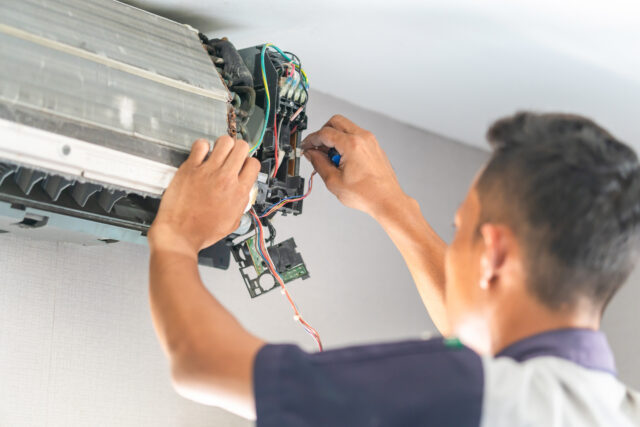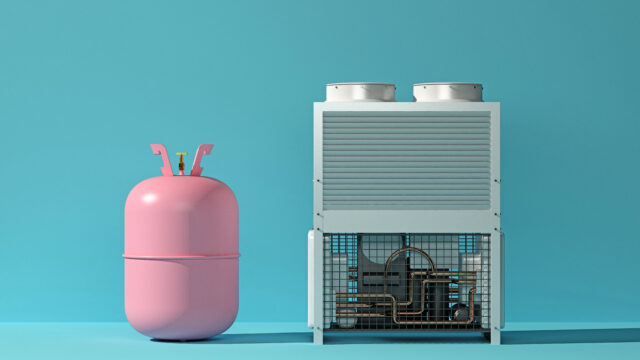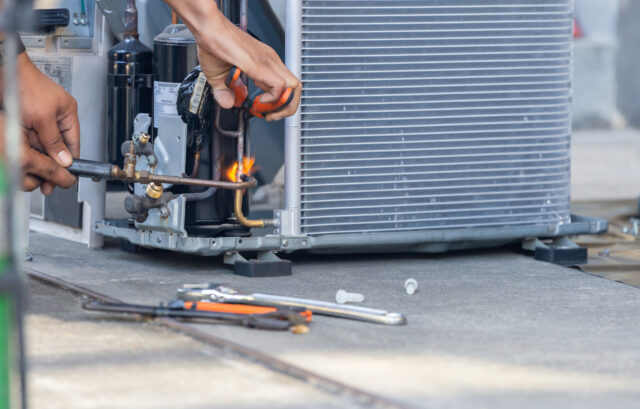HVAC FAQs
By equipping our customers with knowledge of our business, you can make the most informed decisions when choosing an HVAC contractor and successfully communicate with technicians when addressing your HVAC needs.
Click below to view definitions of frequently used terms in our business.
AFLUE
Annual Fuel Utilization Efficiency. A measure of a furnace’s heating efficiency. The higher the AFUE percentage, the more efficient the product. The US government’s established minimum AFUE rating for furnaces is 78%.
Air Handler
The indoor part of a central air conditioning or heat pump system that moves cooled or heated air throughout the ductwork of your home. An air handler is usually a furnace or a blower coil.
BTU
That’s the amount of heat required to raise one pound of water by one degree Fahrenheit. What that means is the higher the Btu rating, the more heating capacity of the equipment.
BTUH
British Thermal Units per Hour – The amount of heat required to raise the temperature of one pound of water one degree Farenheit.
CAE
Combined Annual Efficiency is a measure of the amount of heat produced for every dollar of fuel consumed for both home heating and water heating.
CFM
Cubic feet per minute. A standard measurement of airflow.
CO
Carbon monoxide is an odorless, poisonous, flammable gas produced when carbon burns with insufficient air and is deadly to humans.
Compressor
The part of the outdoor air conditioner or heat pump that compresses and pumps refrigerant throughout the system.
Condenser Coil
The outdoor portion of an air conditioning or heat pump system that serves as a heat transfer point for dispelling heat to the outside air, as in an air conditioner or heat pump in the summer; or for collecting heat from the outside air, as in a heat pump in the winter.
Damper
Located in ductwork, this regulates airflow. Effective in controlling airflow for zoning.
db
Decibel, a unit of intensity of sound.
Duct Work
The method by which air is channeled from the furnace or the blower coil throughout your home.
Evaporator Coil
The part of a heat pump or air conditioning system that is located inside the house in the air handler. It is here that the refrigerant evaporates as it absorbs heat from the air that passes over the coil.
Heat Exchanger
Located in the furnace, the heat exchanger transfers heat to the surrounding air, which is then pumped throughout the home.
Heat Pump
An HVAC unit that heats or cools by moving heat.
HSPF
Heating Seasonal Performance Factor. A measure of heat pump heating efficiency. The higher the rating, the more efficient the heat pump. The US government’s established minimum HSPF rating for furnaces is 6.8%.
Humidifier
Equipment that injects moisture into heated air as it passes from the furnace into the ductwork to be distributed throughout the home.
HVAC
Heating, Ventilation, and Air Conditioning.
ISO 9000
A family of international standards for quality management and assurance.
Purchasing Second Unit
Cost for purchasing second unit is $117.
Refrigerant Lines
Two copper lines that connect the outdoor air conditioner or heat pump to the indoor evaporator coil.
SEER
Seasonal Energy Efficiency Ratio. A measure of cooling efficiency for air conditioners. The higher the SEER, the more energy efficient the unit. The government’s minimum SEER rating is 10.
Single Package
A heating and cooling system contained in one outdoor unit.
Split System
A combination heat pump or air conditioner with indoor components such as a furnace or blower coil. Split systems should be matched for optimum efficiency.
Thermostat
Usually found on an inside wall, this device operates as a control to regulate your heating and cooling equipment so that you can adjust your home comfort at the touch of a switch.
Ton
Unit of measurement for determining cooling capacity. One ton equals 12,000 Btuh.
Zoning
The ability of partitioning a home into various zones, thereby providing the opportunity to control comfort levels in each zone.
Learn More on Our Blog
June 28, 2024
Your Ultimate Guide to new Air Conditioning Costs
Contact us now to get quote
Contact us now to get quote
Emergency Service
(336) 663-1370
This site is protected by reCAPTCHA and the Google Privacy Policy and Terms of Service apply.




